Soviet Ukraine was a traumatic place for a Mennonite kid. Peter Krause, born in 1935 and the youngest of four brothers, had to look after himself as a preschooler. Supervision was a luxury few could afford. His parents were working in the fields, and his brothers were at school. Once a day a gracious neighbour lady would check on him.
Self-sufficiency was the least of Peter’s worries two years later, when their small Mennonite community was engulfed by the Second World War as the German army marched into the eastern lands that included their home. Peter’s family and his community identified as pacifists, but this mattered nothing to the Nazis or the Red Army.
In preparation for the German onslaught, the Soviets conscripted his father and brothers to dig bunkers, an act that prompted some relatives to flee. Soon the Nazis arrived, and the river from which they drew their drinking water was now the buffer between German and Soviet armies, crisscrossed with missiles and machine gun fire for six long weeks.
Suddenly one morning, the Soviets withdrew to the east and a strange calmness fell over the area. The Nazi soldiers surprised the Mennonite people by treating them favourably. Their German ancestry spared them the brutal treatment being inflicted on nearby Slavic and Jewish populations. In one exchange, a Nazi soldier gave young Peter a uniform of the Hitlerjugend, or Hitler youth. He wore it with childlike innocence, not knowing what it symbolized.
School resumed under Nazi rule, and Peter spent the mornings in class, followed by afternoons on the land helping his older brothers push the plough. He never forgot the first warm “field supper” his mother brought to the field, complete with fried eggs and milk inside a picnic basket.
In October 1943, news arrived that the Soviet military had inflicted massive losses on the Nazi machine and were headed their direction. Almost overnight, their German background became a serious liability. Peter’s oldest brother, Jake, was drafted in the Wehrmacht, along with the three strongest young men from the village. Another brother soon followed.
Community elders feared that the approaching Red Army would view Mennonites as Nazi collaborators. Unconfirmed stories were circulating about Mennonite men being executed or exiled to the Gulag. (Today we know these stories were true.)
Peter’s entire village evacuated and made haste for Germany. His family hauled a wagon of possessions, along with three horses, a cow, and some sheep. When the Soviets seemed poised to overtake them, they abandoned the wagon and proceeded on foot. This plan also became too slow for comfort, so the women and children were placed on a westbound train, with the men following on foot with the animals, staying as far ahead of the Red Army as possible. Peter and his mother were loaded into a crowded boxcar with the other mothers and children. They shared a single portable stove, and pancakes were their only food.
As the train sped through rural Poland, everyone was awakened by a tremendous jolt, followed by screeching brakes and screaming children. Their train struck another, and in the crumpled mess a fuel fire raged. Peter watched in horror as four children—his friends—perished and two of the mothers were badly burned. German guards arrived and broke the chaos by marshalling survivors away from the scene.
Soon they were packed into another train, headed for Dresden. It is the tragic irony of war that sometimes a refugee’s destination is no safer than the journey to get there. The Krause family (his father and a brother joined them at Christmas) had arrived in a Nazi industrial and transportation hub marked by Allied Bomber Command for destruction. That February they hid underground while successive waves of air bombardments set the city on fire, unleashing a human death toll of 25,000.
The only good news for Peter at this time, apart from surviving the burning of Dresden, was that his father and all four brothers were still alive. The first group survived the journey from the Ukraine, and word arrived that the others had been released from the German army and were on their way for a reunion in Dresden.
In the spring of 1944, German authorities forced the reunited Krause household to work as farm labourers in Yugoslavia. But eight months later the Red Army was moving there as well. Peter’s father secured permission to visit an uncle in Feistritz, Austria, and once again the family travelled on foot. They moved at night, when Allied planes were less likely to spot them. To their relief, a train was still running on a stretch of track untouched by the bombing raids.
Safe at his uncle’s house in Feistritz, the Krauses shared a single room with five other families. Peter cared nothing about the cramped quarters: they were alive; there were cousins to play with; and he could attend school again.
Like other Mennonites, the Krauses were a peripheral people. In the Soviet Union, Mennonites were branded as Nazi collaborators, while in the Third Reich they could be mistaken as Russians. Wary of deportation and almost certain death, Peter’s father told the Austrian government that they had come from Holland. They secured permission to stay, but only at a refugee camp near Salzburg. Food was scarce, and they made the difficult decision to butcher their horse. Young Peter bartered their limited possessions in exchange for milk and bread.
Faced with starvation, Peter’s father again plied his negotiating skills and received permission to rejoin the extended family in Feistritz. From there he worked tirelessly with the Red Cross to locate Peter’s uncle in Canada. The boys kept busy playing chess and caring for rabbits they bred underneath the house to add protein to their diets.
One Sunday after church, a telegram arrived from Canada. The uncle in British Columbia promised to help them immigrate to Canada. But misfortune struck again. The following week Peter fell while climbing a cherry tree and broke his arm. Worried that the Canadian immigration officials might refuse him entry into Canada, one of his brothers cut off the cast, but it was the lump the immigration doctors discovered in his mother’s lung that was more serious. Peter’s three older brothers were allowed to go to Canada, but he and his parents had to stay behind. The farewell was agonizing.
By 1947 the Second World War had been over for two years, but Peter’s father worried there might be another European conflict—this time between the West and Soviet Union—and he looked for opportunities to leave the continent. The only country willing to accept them was Paraguay, so they loaded their belongings into a truck provided by Mennonite Central Committee and travelled north to Germany’s Baltic coast. Six weeks passed by while they were in a holding area before the migrant ship arrived.
When they arrived in Argentina, they were only at the halfway point of their journey. Two more vessels were needed to carry them up muddy tropical rivers, where Mennonite settlements were sprouting in the Paraguayan wilderness.
Someone on the boat told them that people from their part of Ukraine had survived and were living in Village 11. It was reason enough to select the location for their homestead. Peter and his father cleared four acres of jungle in searing heat, their only tools a simple saw and axe. They slept in a one-room building with no walls until they constructed a 16×14-foot house and corral. It helped that his brothers, who had settled in Abbotsford, B.C., were sending money. They used the funds to purchase a wagon, two cows, and two black horses that Peter prized.
In 1952, the long-awaited news came saying that their immigration papers to Canada were approved, as his mother had passed the medical test. The Krauses hurried to sell their animals and wagon but had to abandon the land they cleared without a profit, when no buyers could be found. Their first plane ride was destined for Montreal, where a thief in the airport stole his mother’s purse. Undeterred, they made the next connection to Toronto and boarded a train for Vancouver. The long journey ended with a beautiful reunion that had been seven years in the making.
Peter’s brother, Dick, found him two part-time jobs—one packing cement bags onto boxcars and another at a sawmill. This manual labour was difficult because Peter’s body had deteriorated from years of poor nutrition in Europe and rural South America.
By the late 1950s, Peter’s health and command of the English language had improved to the point that he and his siblings were ready to start their own company. Krause Brothers Construction purchased empty lots in Vancouver and built houses for resale. The operation soon expanded with apartment blocks, a building supply company, and partnerships in a realty and a roof truss company.
On the road to financial success, Peter was always sensitive to the needs of others. A devout Christian, he emanated a personal warmth and spirit of generosity. His proudest moments were marrying Margaret Penner (in 1965) and the births of his children, Kevin and Nancy. The five grandchildren that arrived a generation later added to his joy immeasurably.
In 2015 the pacifist who once fled the Red Army and dodged Allied bombs fought a valiant battle with cancer. Peter Krause passed away on Sept. 18, 2015, at the age of 81.
Stephen Fielding teaches history at Camosun College. Peter Krause was his great-uncle by marriage.


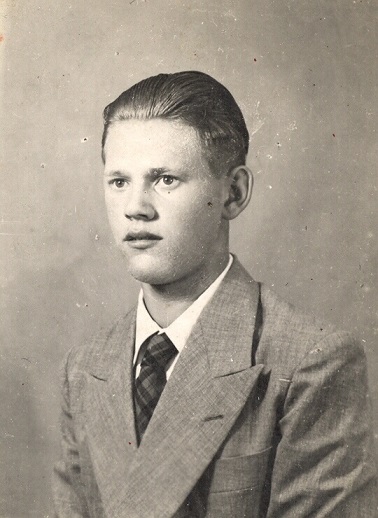

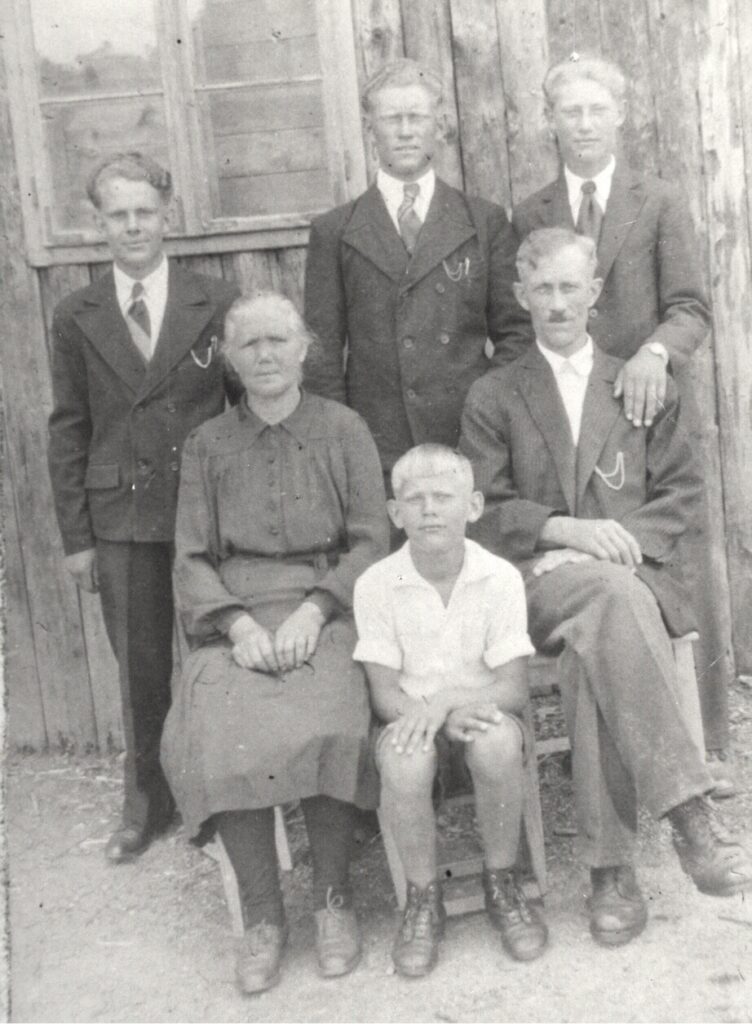
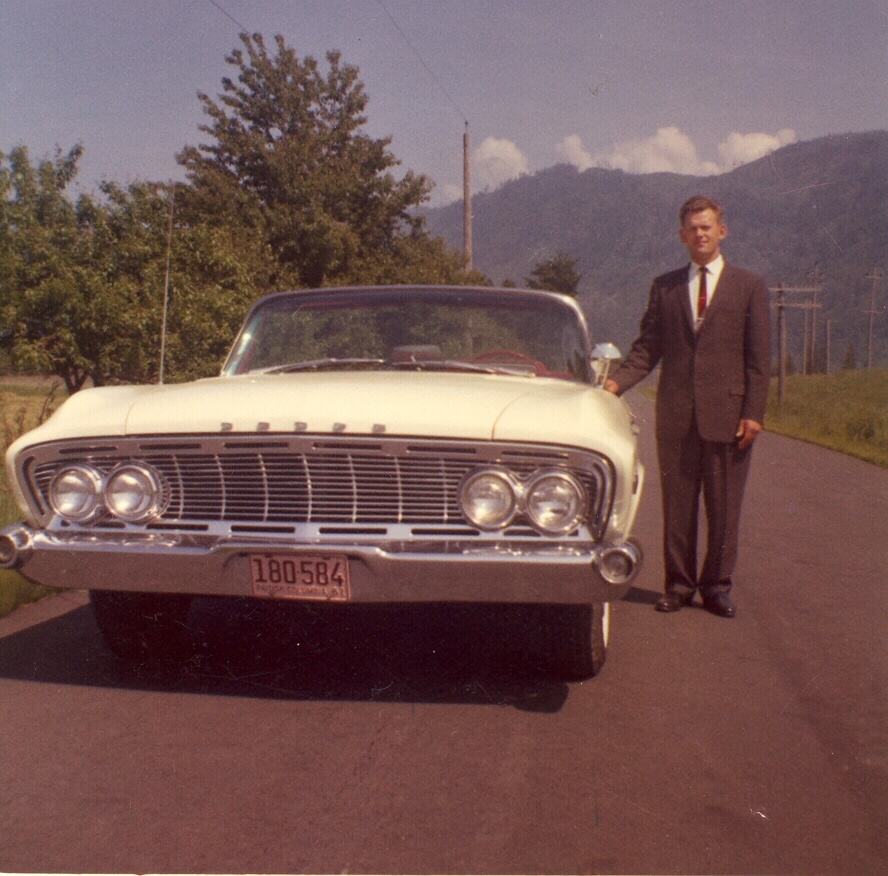
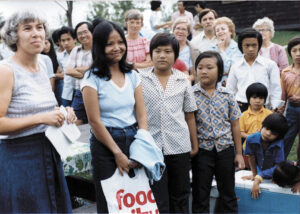
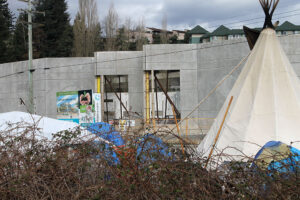
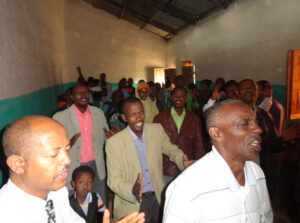

Leave a Reply
You must be logged in to post a comment.